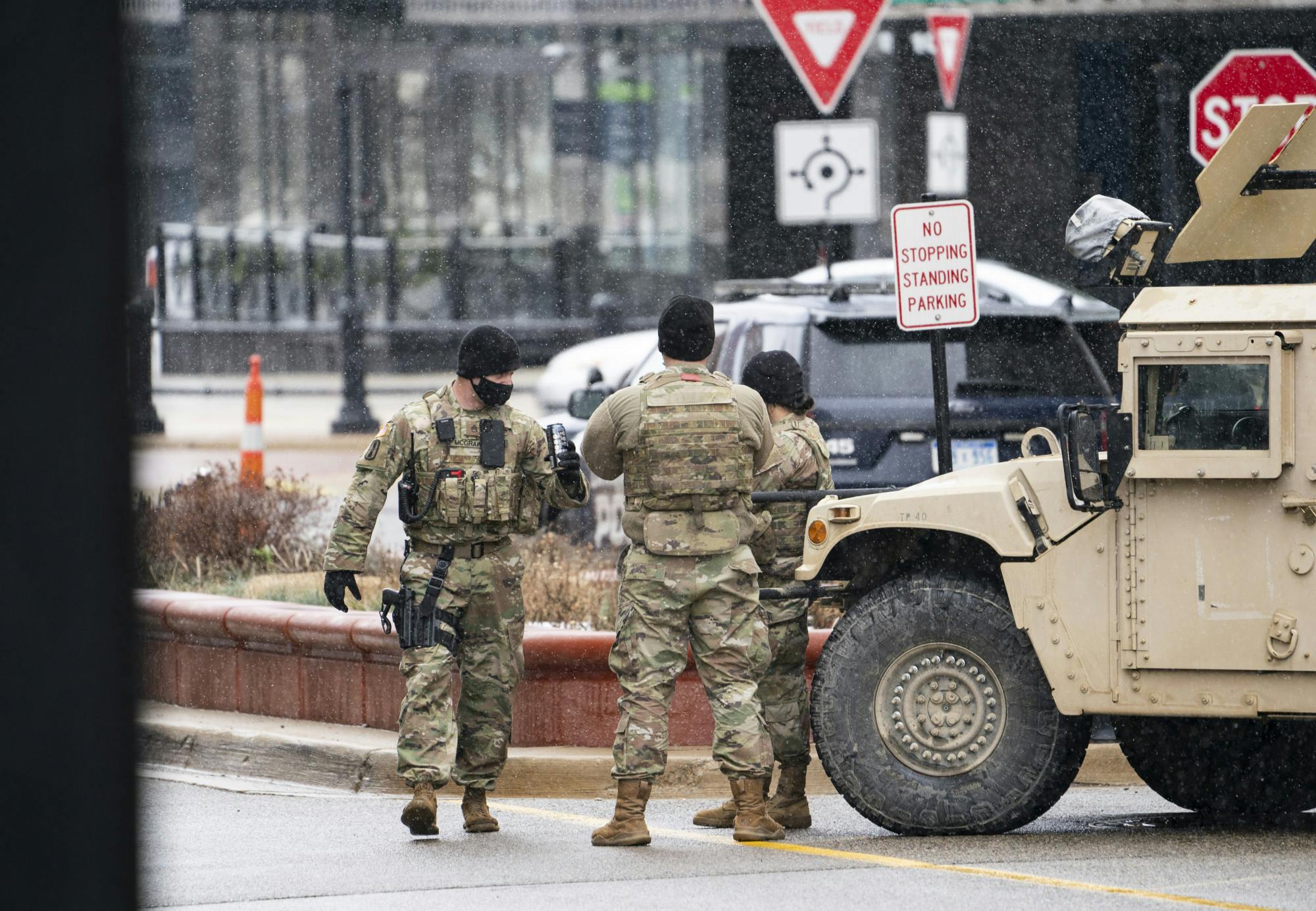Thousands and millions of Americans were glued to their television screens on Jan. 6, watching as the insurrection at the U.S. Capitol unfolded before their eyes.
In the days that followed, more footage emerged that answered the question of what exactly happened once the insurrectionists breached the building.
MSU Professor of Strategic Communications, Shawn Turner — who served 21 years in the Marines — said the most jarring part of watching the footage from inside the Capitol was how much the insurrection mirrored a military operation.
"What I'm struck by is the amount of military-style coordination," Turner said. "I recognize military training, I recognize military cooperation (and) collaboration in this crowd. We saw examples of what we call command and control where you have someone with a bullhorn ... giving direction."
According to Turner, the rifling through the files and looting of various items in the building that led to the littering of documents and debris on the floor was reminiscent of the collections units on military raids. He said the potential risks of this will be a national security concern for the indefinite future because even while the FBI looks into possible missing electronic devices, it's completely possible there are multiple copies of documents with sensitive information walking around in the camera rolls of some of the insurrectionists.
Two days after the siege on the Capitol, staffers confirmed the laptop used by House Speaker Nancy Pelosi was taken from a conference room. The FBI received a tip from the ex-boyfriend of a Pennsylvania woman, who they suspect took the computer with the intention of selling it to Russia. The potential for turning over information for profit or individual gain is a top concern right now, according to Turner.
"Clearly, most of the people who were there were looking for evidence or information (for) the president's claims about a fraudulent election were true," Turner said. "They were looking for something that might give them some indication that the election may have been stolen. ... There's already some discussion about whether or not the individual who stole that laptop was actually seeking to benefit financially from having that laptop by reaching out to Russian operatives. ... So, the implications of having people going through the desks of members of Congress, having them rummaging through files and papers on the floor of the Senate, are overwhelmingly significant."
As of the Inauguration Day eve, 12 National Guard soldiers deployed in D.C. were removed from the security detail for the ceremony after the vetting process revealed possible ties to right-wing groups. Turner said vetting the deployed soldiers ahead of the event was the best plan of action to ensure no threat was able to slip through the cracks.
"We are talking about a completely different world with regard to the security around the inauguration — and when I say a different world I don't mean different from the security that was in place on Jan. 6, I mean different from all the security that's ever been in place for any inauguration in the history of this country," Turner said. "When we go into the national service, there are extensive background checks ... and I think that what we're doing here, in terms of additional vetting where we're looking at connections ... any indications that they espouse this ideology, I think those are prudent steps in the current environment to make absolutely sure that as we inaugurate a new president, that there are no weak links."
The incident at the Capitol has turned the United States' focus to domestic terrorism and internal security risks, which Turner believes gives value to not only information that might have been extracted from the Capitol but also the people who were involved in the insurrection themselves, especially those with military or law enforcement backgrounds. He said the combination of them having seen the layout of the building and having access to valuable intelligence is appealing to foreign operatives who now have a very good target.
"I now have someone who can talk to me about the lay of the land inside our nation's Capitol," Turner said. "... And that person is in dire straits right now because they're going to be facing jail time and massive legal field meetings and all those sorts of things so it's a very rich target."
While Donald Trump's presidency is over, his impeachment trial is only beginning. The Trump base has consistently protested any attempts to hold the outgoing president accountable or elect a new person to the office. The impeachment trial being conducted under the Biden-Harris administration might bring similar crowds, Turner said.
The insurrection exposed the gaps in the domestic security and law enforcement strategies. In order to move forward and ensure an attack of this sort doesn't happen again, Turner believes it's important to reevaluate the current cooperative efforts between different law enforcement departments, how they interact and how they deploy reinforcement troops in an emergency.
"The difficulty for various different jurisdictions in and around our capital, the difficulty that they have in coordinating and calling on each other at a time of need, that entire system needs to be examined," Turner said.
Turner suggested walking a couple of blocks and being in different jurisdictions with regards to policing, so when the Capitol police — who is responsible for the Capitol building and area around it, is dealing with a situation where they don't necessarily need to call the Washington Metro Police Department, they call on the National Guard and others.
"That process is a process that has to be," Turner said. "There's got to be a system in place that makes sure it's rapid. And, it needs to be one of those situations in which it can't always be reactive. When those who are descending on Capitol building, there's got to be a plan to get additional forces in there right away."
Support student media!
Please consider donating to The State News and help fund the future of journalism.
Discussion
Share and discuss “'Entire system needs to be examined': Former Marine reflects on Capitol insurrection, Inauguration Day” on social media.







